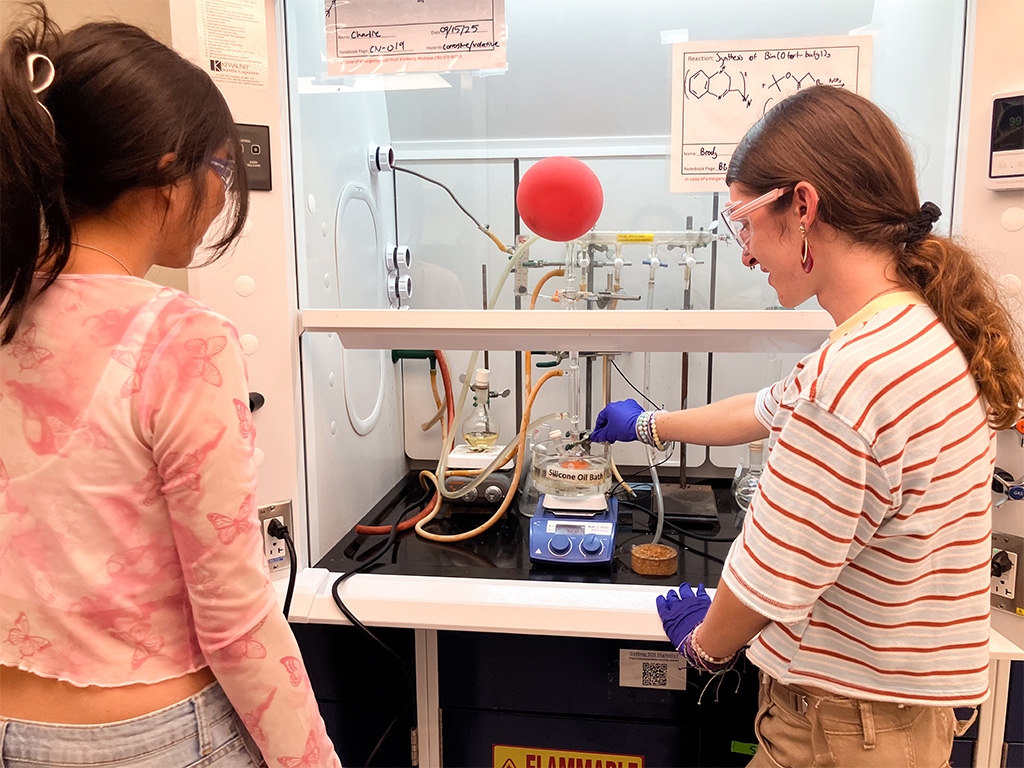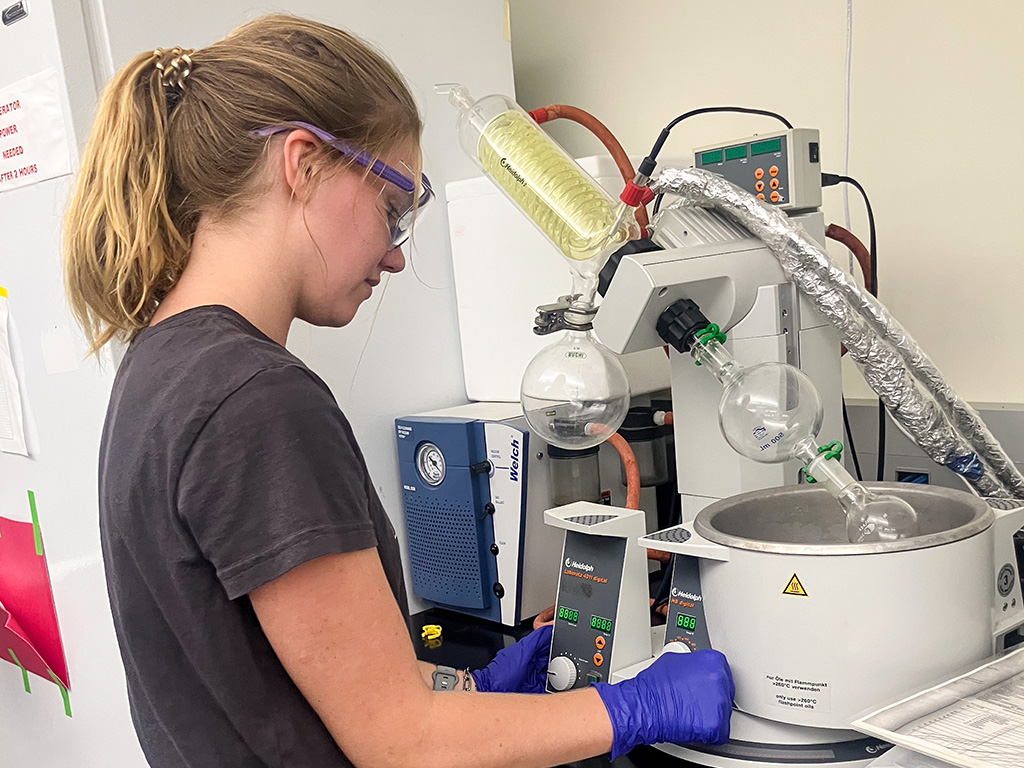
HPU students Kaesha Yanes (left) and Brody Goudy (right) are setting up a reaction together. Yanes is a biochemistry major who is helping to train Goudy, a marine biology and math major.
HPU has received a $243,780 grant to advance rare earth metal research while creating hands-on opportunities for undergraduate students. The National Science Foundation (NSF) awarded HPU the two-year grant for the study of novel photoredox separation methods, funding undergraduate student research stipends and travel to present findings at national chemistry conferences.
The NSF-funded project will focus on separating group (IV) metals, including zirconium and hafnium, which are chemically similar and mined together from a common ore. These elements are especially significant because of their role in nuclear reactors. While the immediate research centers on the group (IV) metals, the methods being tested in HPU’s research labs have broader implications for the separation of rare earth elements, which are incorporated in materials critical to modern technologies such as electronics, batteries, LEDs, and wind turbines.

Amelia Stevenson is a chemistry major, seen here putting a reaction on a rotary evaporator.
“This federal grant will allow us to explore innovative ways of separating metals that are incredibly difficult to purify,” said HPU Assistant Professor of Chemistry Kimberly Mullane, Ph.D., Principal Investigator (PI) of the grant. “In this project, we’re focusing on group (IV) metals that are found together in the same ore and are notoriously hard to separate. The separation challenges we’re addressing are very similar to those faced with rare earth metals. Right now, the U.S. imports about 70 percent of these elements from China. If we can make separation more efficient, it would have a major impact.”
Mullane and her research team will explore how to use light to selectively excite one metal, making it more reactive and easier to separate.
“Traditional extraction methods can take many repetitions before you reach the desired level of purity. By changing just one of the metals with light, we aim to make the process more efficient,” she said.
What Mullane is most excited about, however, is the chance for undergraduate students to help lead the research. “The primary goal of these grants is to train undergraduates in real lab research,” Mullane said. “This summer, three students will each receive an $8,000 stipend to conduct research for 10 weeks. Next summer, four students will be funded. They’ll also present their work at the American Chemical Society’s national meetings in Atlanta, Chicago, New Orleans, and San Diego. These are opportunities that most undergraduates rarely get.”
For Mullane, the impact of undergraduate research is personal. She recalled working with one HPU student, Kaesha Yanes of Hawai‘i, who realized her own strengths and abilities during her research experience and now plans to attend graduate school and earn her Ph.D. in chemistry. “That’s what I’m most proud of,” Mullane said. “At HPU, students have the chance to reinvent themselves. They may walk through our doors unsure of their path, but with mentorship and lab experience, they leave ready to pursue advanced degrees or professional careers.”
"Conducting research at HPU under the guidance of Dr. Mullane has been a great privilege,” said Yanes. “This research opportunity, supported by IDeA Networks of Biomedical Research Excellence (INBRE), played an important role in my decision to pursue chemistry graduate studies. I am incredibly grateful for the NSF grant we received, and I look forward to developing new skills with our upcoming laboratory equipment."
Unlike large state universities, where only top-tier students are selected for research, HPU offers lab opportunities even for those who may have struggled early on in their academic careers. “Our undergraduates train other undergraduates, which creates a cooperative learning environment,” says Mullane, “and with our small student-to-faculty ratio, every student has a chance to succeed.”
HPU’s College of Natural and Computational Sciences offers undergraduate and graduate programs that prepare students for careers in chemistry, biology, marine science, environmental science, and beyond. The University’s Downtown Science Laboratories expand access to research and innovation in the heart of Honolulu, underscoring HPU’s commitment to hands-on learning and student success.
To learn more about the College of Natural and Computation Sciences, click here.


